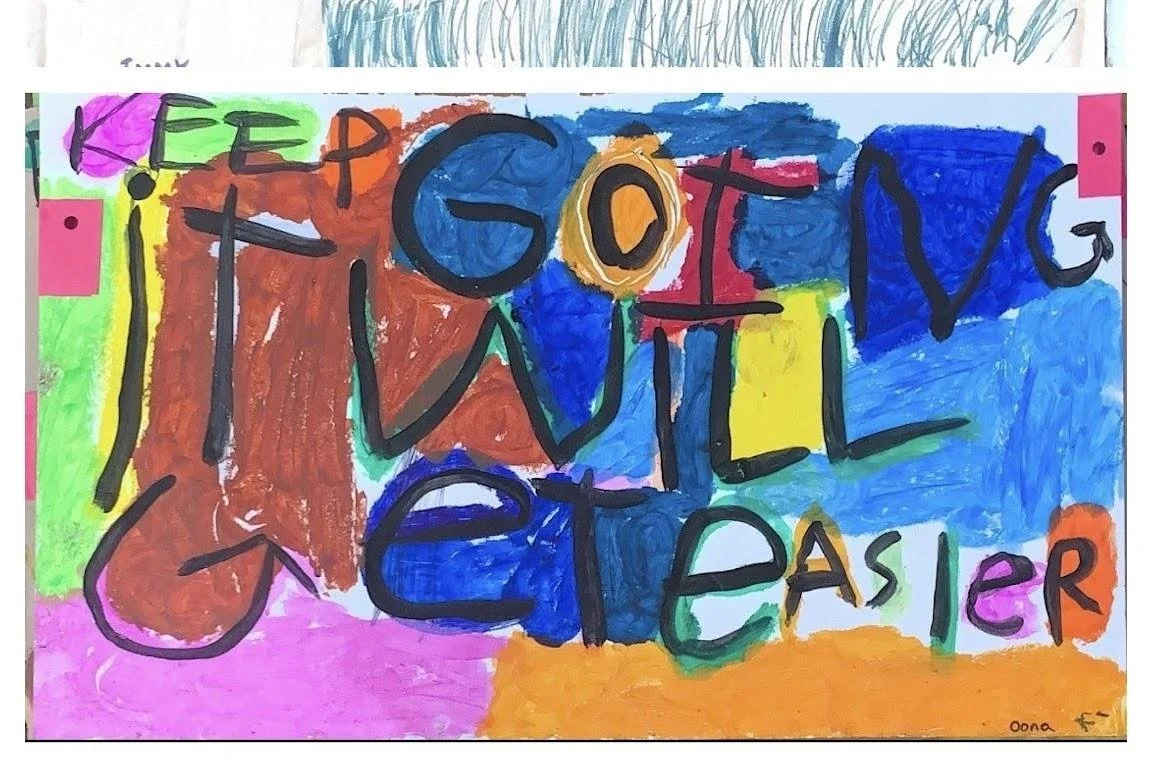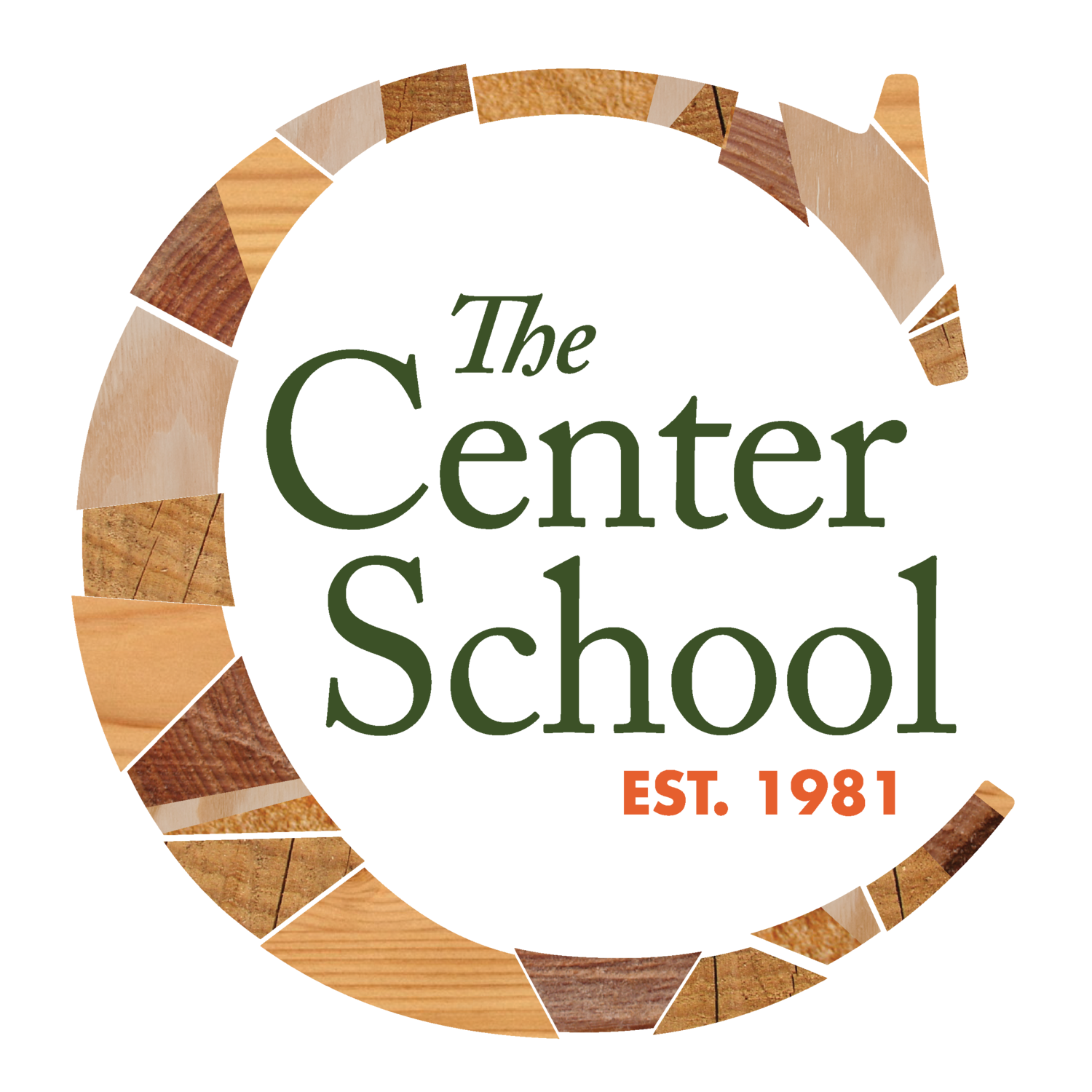
Spreading Messages of Body Positivity and Activism in The Forest Primes (K/1)
During the first few weeks of the school year when we first read the book Every Body, A First Conversation About Bodies By Megan Madison, Jessica Ralli, and Tequitia Andrews to the Forest Primes, we were really struck with how inspired the kids seemed to be to spread messages of body positivity, fatphobia awareness, and activism through making motivational posters.

Exploring Neurodiversity in a 7th and 8th Grade Literature Group
Inspired by the powerful and thought-provoking book Mockingbird by Kathryn Erskine, Vanessa's seventh and eighth grade lit class has embarked on a journey to explore the world of neurodiversity.

The Origins of Halloweek in The Super Primes (4 year-olds)
For as long as I can remember I have loved Halloween. For the seven years I have been a Center School teacher, I have shared my passion for Halloween with both my students as well as the larger Center School community. Any student who I have taught can recall some bit of the raucousness that would eventually become Halloweek, a weeklong celebration of Halloween.

Growing Together as a Community With The Dancing Primes (Toddlers)
We are now seven weeks into the school year, a significant period of time in the life of a toddler, and a length of time in which the amazing, unique, and individual personalities of each child are shining through every day. The Dancing Primes have worked hard learning one another’s names, remembering the physical layout of our classroom, school, and outdoor campus, learning the classroom routines, and “moving together” during our transitions very seriously.

What Does it Mean to be Safe: Discussions With The Lumber Primes (K/1)
Each fall in the Lumber Primes, we facilitate a series of discussions and activities focused on what it means to be safe, who deserves to be safe, and whose responsibility it is to ensure that everyone feels safe in our classroom community. This year the topic of safety feels especially poignant, in light of the Israel-Hamas war and the unfolding devastation in Gaza.

The Independent Project in The Uppers (6th-8th)
In talking with Center School alum, I’ve discovered that there are many things students remember about their experience at Center School. One of the experiences I hear about is Projects Class.

Community Sketchbooks in the Puzzle Primes (3 year-olds)
This year in the Puzzle Primes we have two community sketchbooks! These sketchbooks live at our communal drawing desk. As a class we will be working in these sketchbooks together and by the end of the school year we will have a very interesting and beautiful visual representation of our time together. We have always done a lot of communal art in the Puzzle Primes but never in this way which provides the students an intimate time to express themselves in these books.

The First Six Weeks of School in the Mups (2nd/3rd)
Last Friday marked the marked the end of our sixth week in school! In the Mups classroom, we base the first weeks of our curriculum on elements taken from Responsive Classroom’s book, The First Six Weeks of School. Responsive Classroom is an educational approach that emphasizes the importance of creating a positive and engaging classroom environment to support students' social, emotional, and academic development.

8th Grade Science: Learning From the Experts (the Lumber Primes!)
The 8th grade Uppers class, in addition to their study of chemistry, are doing an ongoing co-learning class with the Lumber Primes. Each week, we go out to the forest, do our weekly data collection on the two beech trees we're monitoring for a Harvard study on climate change, and then join the Lumber Primes for an exploration and investigation.

Cross-Pollination and Community Service: Electives in the Uppers (6th-8th)
Electives play an essential role in developing middle school students by allowing them to explore their interests, learn new skills, and expand their perspectives beyond core academics. In the Uppers, active engagement in our school community has been a large part of our focus this fall.

The Documentation, Interpretation, and Reflection Cycle of Inquiry in the Forest Primes (K/1)
“Documentation helps to ensure that individual and group learning are interdependent and tightly correlated, while simultaneously retaining the unique qualities of both. When their learning is documented, children can revisit and thereby interpret their learning experiences and also reflect on how to develop these experiences further. Interpretation and reflection become fundamental aspects of documentation that are not only retrospective, but also are projected toward the creation of future contexts for learning.

Art in the Middles (4th/5th)
Art happens on Friday mornings in the Middles. We believe art should feel accessible and enjoyable. We sit around the big conference table together where art materials and concepts are introduced. Currently, we are learning about color theory through monochromatic paintings.

Woods Recovery Zones in the Super Primes (4-5 Yr.-Olds)
In the first few days in the woods with the children, we introduced the concept of Woods Recovery Zones. We started by defining the words in Super Primes style. A definition should give information about the word without using the word itself. Woods are “a place where trees are growing close together.” Recovery is “a time when you are getting better from being sick.” A zone is “a place or area.”

Creating Norms Within Our Uppers (6th-8th) Community
What is a Norm? In Uppers we think of our Norms as a guideline for how we want to hold each other accountable, how we are able to trust each other, and how we can feel supported and seen at school.

Embracing Playful Learning: A Constructivist Perspective on Games in the Mups (2nd/3rd)
We play games everyday in the Mups. Whether in our Morning Meeting, during Outside Time or in our afternoon Choice, we know that games are a critical part of learning and development. At the Center School, constructivism is at the heart of our educational philosophy.

Dancing Primes Move Together (Toddlers)
This is a phrase we use a lot in the Dancing Primes, especially during the first several weeks of school when we are still learning how to be a community together. We teach the Dancing Primes the importance of us all moving together as a group so we can be safe, teachers can effectively take care of kids, and the smallest/slowest friends are not left behind.

Wild Edible Investigations in the Lumber Primes (K/1)
During the past few weeks the Lumber Primes have been busy getting to know each other and forming a community in the forest. We have also been taking time to get to know the land that makes up our base camp classroom, and all of the living things that we share this space with. Much of this curriculum is emergent, as we take time to study the salamanders, mushrooms, caterpillars, worms, and flowers we encounter throughout our days.

Uppers (6th-8th) Electives: Band
Middle schoolers, potentially the most self-conscious cohort of humans alive, are also some of the most vulnerable and heartfelt people. At least in band practice. This week, out of the 9 students in band, 7 got up to sing, play instruments, and share ambitions, each solo and unplanned.

Self Portraits in the Mups (2nd/3rd)
In the Mups, the pedagogy of art education is not just about creating beautiful images; it's about fostering creativity, embracing diversity, and nurturing academic resilience in our young learners. In a recent art project, our students delved into the world of self-portraits, a journey that involved not only honing their artistic skills but also addressing important themes of racial justice and celebrating individuality.

Universal Design in a 3 Year-Old Preschool Classroom
In preparation for the upcoming school year, the preschool and K-1 teams met to discuss the role of visual aids within a Universal Design framework. How can we best utilize visuals as a tool to make the classroom environment, materials, routines, and expectations more accessible to our students?
